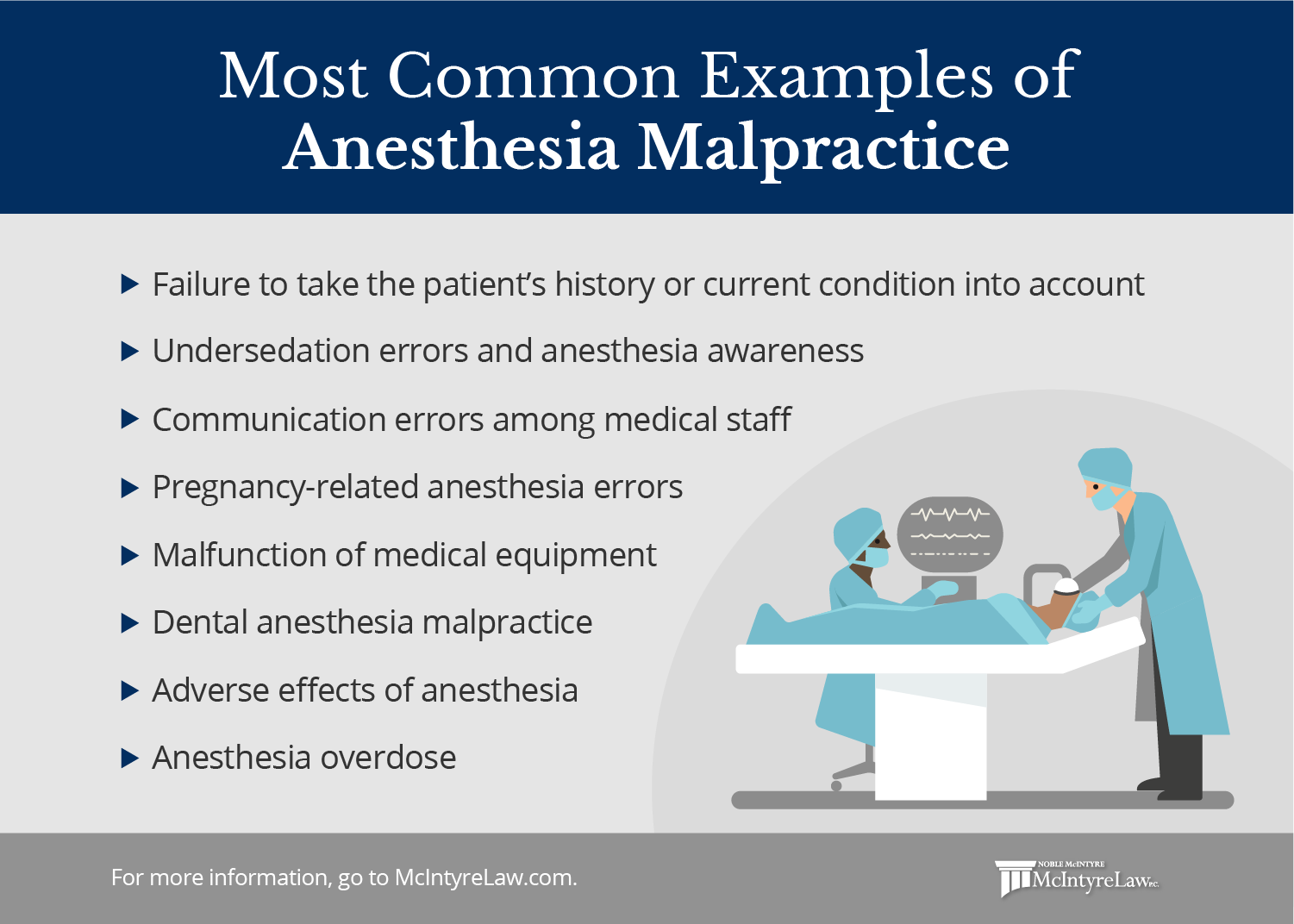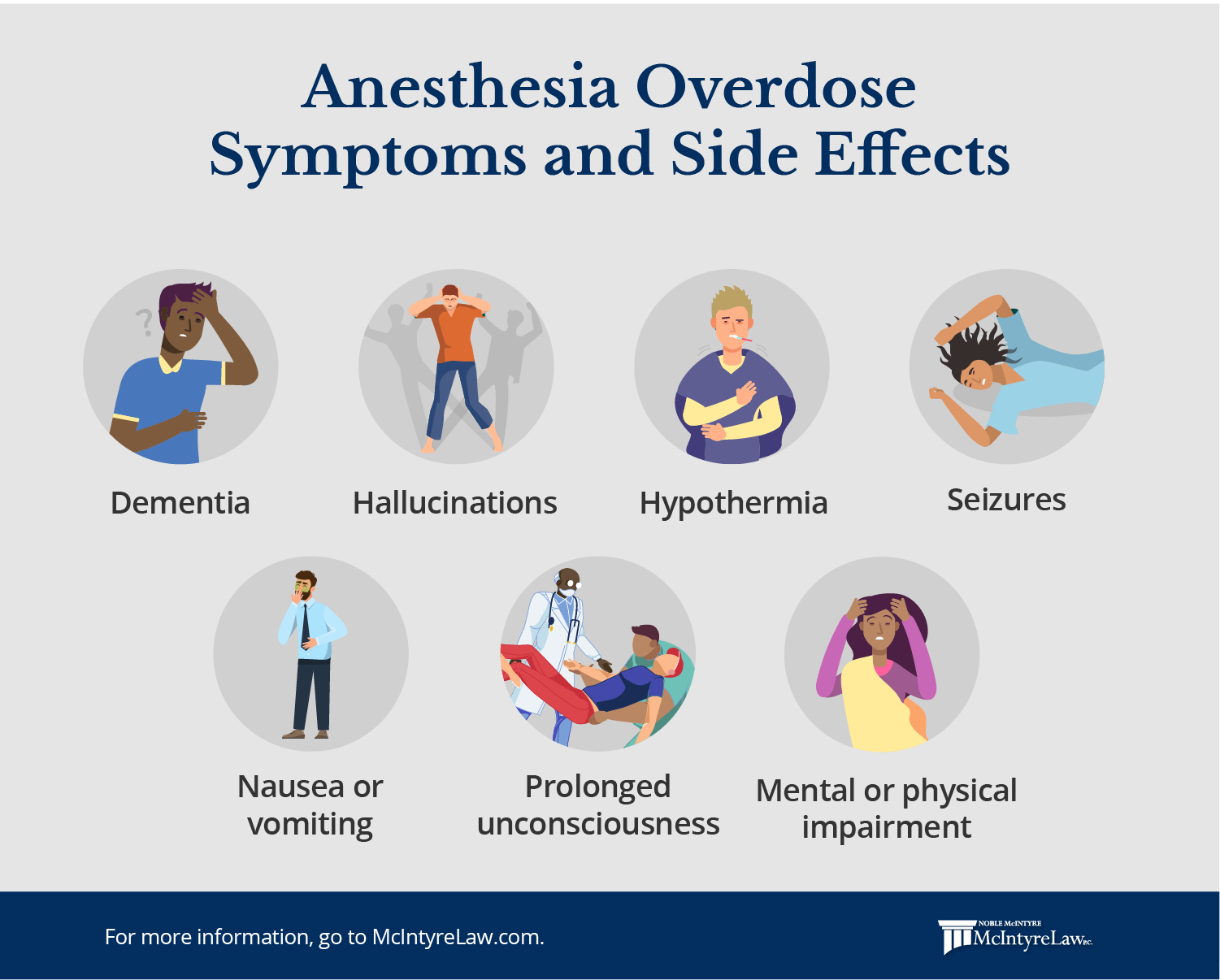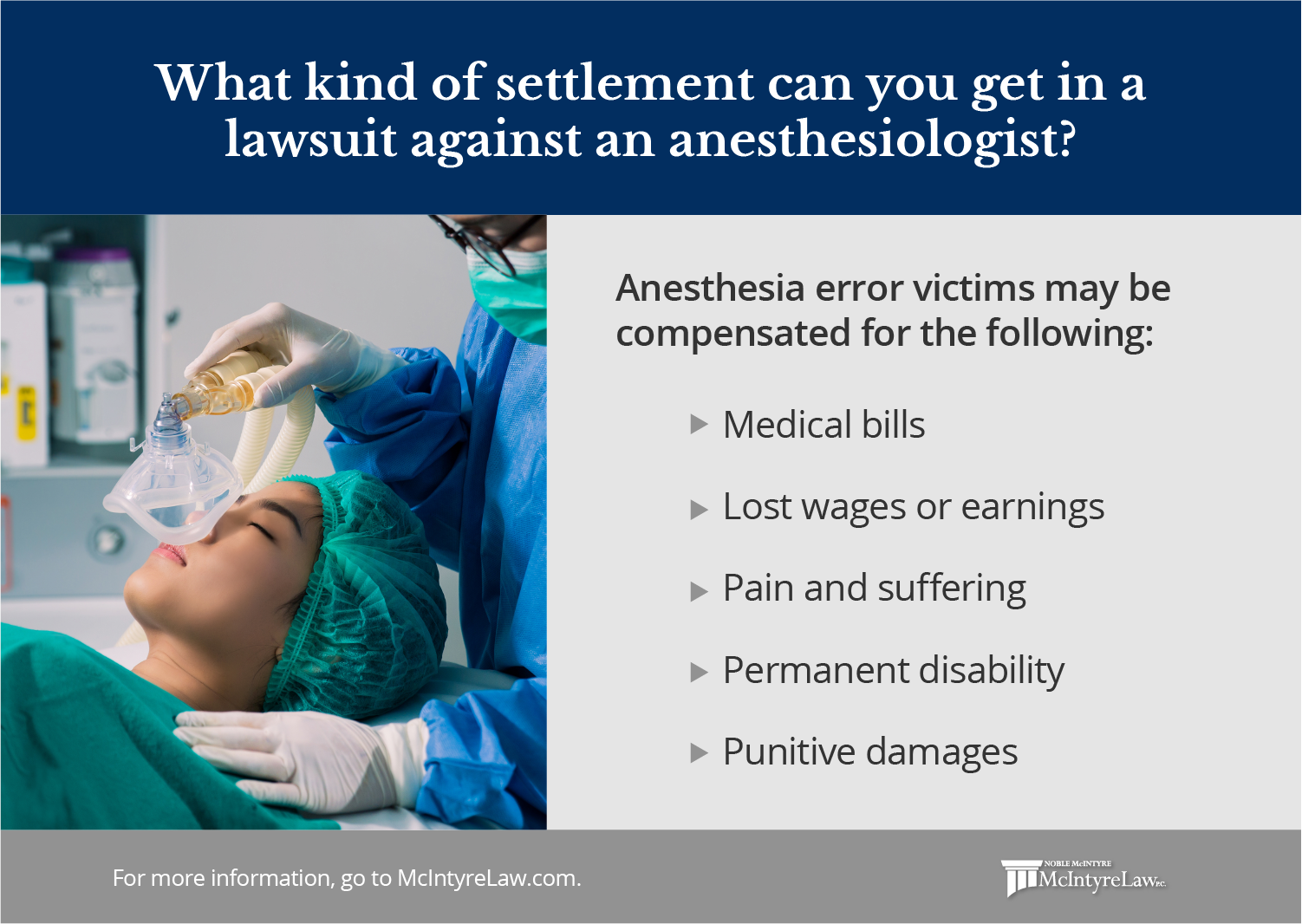
Waking Up During Surgery & Other Cases of Anesthesia Malpractice
Published on March 12, 2020Anesthesia is often given to patients before they undergo surgical procedures. This medication numbs a patient and/or places them into a sleep state, allowing doctors or surgeons to operate without disturbing them. If patients were awake and not numb during these procedures, they would experience overwhelming distress, pain, and suffering. For this reason, the proper use of anesthesia is of the highest importance to surgeons and other medical professionals.
How dangerous is anesthesia?
Although anesthesia is generally safe, we continue to see problems associated with its use. Individuals continue to suffer permanent damage or death as the result of anesthesia error.
A study of 2,211 anesthesia-related deaths in the United States between 1999 and 2005 found that 867 deaths occurred in hospitals, 348 occurred in outpatient settings, 46 occurred during admission to a hospital, 258 occurred after discharge, and 349 occurred in a hospice or nursing home facility.
What are the most common examples of anesthesia malpractice?
- Dental anesthesia malpractice
- Anesthesia overdose
- Undersedation errors and anesthesia awareness
- Adverse effects of anesthesia
- Malfunction of medical equipment
- Communication errors among the medical staff
- Failure to take the patient’s history or current condition into account

Dental injuries during general anesthesia
Dental injuries during general anesthesia can be numerous, including fractured enamel, crowns, and roots. Although many of these injuries are not life-threatening, they can cause a lot of trouble for patients. These injuries often result in mental and physical pain and suffering, and they can cost thousands of dollars to fix or repair.
What are the common types of dental anesthesia malpractice?
Individuals who receive anesthesia may suffer dental injuries as a result of the equipment being used. Some of the most common types of dental trauma include the following:
- Fractured or broken teeth after intubation. Teeth may chip or be broken during anesthesia by tubes and other equipment placed in the mouth of a patient.
- Teeth loose due to anaesthetic. This injury, also called tooth subluxation, generally describes instances where teeth are knocked loose but not displaced.
- Teeth knocked out or dislocated during intubation. This is the complete displacement of a tooth from its socket, or when teeth are knocked out of their normal position. These injuries may be accompanied by fractures of the alveolar bone (the thick bone around the tooth socket), contusion (bruises), or comminutions (crumbling).
- Prosthetic devices knocked out of the patient’s mouth. These parts, like false teeth, fillings, or crowns, can go down a patient’s throat.
Cases of anesthesia overdose
One of the most common problems with anesthesia is giving too much medication to a patient. Typically, negligence plays a key role, and patients affected by anesthesia overdose are placed at risk of incurring serious brain damage or even death.
Patients are likely to experience an anesthesia overdose when:
- They receive two or more different anesthesia agents. They may have adverse reactions to one another. This can cause the patient to suffer extensively.
- The anesthesiologist doesn’t consider the size of the patient. For example, children are unable to handle the dose that’s typically provided to a grown adult.
- Defective equipment causes an overdelivery of anesthesia medication. This can happen when the vaporizer used to deliver the anesthesia isn’t calibrated correctly.
Can too much anesthesia cause side effects?

Although doctors are required to monitor anesthesia administration continuously, there are some instances where too much medication is provided to a patient. When too much medication is given, a patient can suffer a variety of side effects. Some of the most common side effects that indicate an anesthesia overdose include the following:
- Dementia
- Hallucinations
- Hypothermia
- Mental or physical impairment
- Nausea or vomiting
- Prolonged unconsciousness
- Seizures
In some cases, patients can go into a coma and have problems waking up. In other cases, patients can experience serious and permanent impairments that can affect their mental and physical health and well-being. Patients who suffer should contact an anesthesia malpractice attorney in Oklahoma to explore available legal options.
Anesthesia awareness & other errors that happen under sedation
Every day, millions of patients across the United States are administered anesthesia so doctors can perform surgery and other procedures. This type of medication is administered to ensure patients remain numb and/or asleep so they don’t experience any pain or suffering. Unfortunately, there are instances where anesthesiologists fail to adequately monitor patients. When patients aren’t monitored correctly, they can suffer from being undersedated. When this occurs, patients may experience what’s called anesthesia awareness.
The term “anesthesia awareness” is used to describe a state where patients are waking up during surgery but are paralyzed from anesthesia and unable to communicate or move. Unfortunately, patients can experience extreme pain during this state, be unable to breathe, feel the surgery being performed on them, and may experience extreme terror.
Anesthesia awareness can have long-term emotional and psychological effects on patients. Patients who experience this state often suffer from sleep disorders, flashbacks, panic or anxiety attacks, post-traumatic stress disorder (PTSD), or an extreme fear of doctors or medical settings.
What are the causes of anesthesia awareness?
Although there have been extensive improvements in the quality of anesthesia care that patients receive today, waking up during surgery is still possible for various reasons. Some of the most common causes of this state:
- Inadequate use or administration of anesthesia
- Equipment failure or misuse
Some scenarios, particularly those involving high-risk surgery, present unique challenges. In cases where patients undergo cardiac surgery, trauma surgery, or even emergency cesarean deliveries, it may not be in their best interest to be placed under deep sedation. During these surgeries and various other emergency situations, it may be impossible to completely avoid anesthesia awareness.
Heart attack while under anesthesia
Individuals often wonder about their chances of suffering a heart attack while under anesthesia. Thankfully, this terrifying scenario isn’t one that occurs often. Unfortunately, no procedure comes with zero risks of experiencing cardiac complications.
A study conducted in Japan found that around 6.34 patients out of every 10,000 suffer cardiac complications while under anesthesia. Although this is an extremely rare occurrence, it’s imperative for medical professionals to know how to properly respond to this dire circumstance should it occur.
Which patients are at risk of having a heart attack during anesthesia?
It’s crucial for both patients and surgeons to recognize when patients are at an increased risk of having a heart attack while under anesthesia. Some circumstances that place patients at an increased risk of cardiac complications include the following:
- Individuals with extensive bleeding and transfusion requirements
- Patients in shock
- Patients undergoing emergency surgery
- Patients having emergency craniotomies or cardiac, abdomen, intrathoracic, or major vascular vessel surgery
- Patients with preoperative physical status limitations
- Children under 12 months of age.
Recognizing when a patient is potentially high-risk will ensure proper measures are set in place before an incident occurs. When a medical professional recognizes that a patient is at a high risk for having a heart attack while under anesthesia, it’s crucial that they act accordingly. Medical providers should refrain from administering the full dosage to these patients unless absolutely necessary.
In-hospital infections after anesthesia
Anesthesia and infections are not typically two things that are commonly found together. The rules and regulations set in place by health officials ensure patients don’t develop any infections as the result of using the equipment for their medication. It’s crucial to understand the procedures established to keep patients safe.
There are numerous rules and regulations that anesthesiologists must follow to ensure patients don’t develop any infections due to the use of anesthesia. If that happens, it can indicate that one or more medical providers failed to follow protocol and established procedures.
Neurological injuries from anesthesia
One of the types of problems patients can experience from anesthesia use are neurological injuries. These are injuries that affect the central and peripheral nervous system. These injuries all require long-term care and treatment. In many cases, patients have to go through therapy and may require corrective surgery. Patients may need medication and/or medical devices for the remainder of their lives.
It’s crucial to know the risk factors, outcomes, preventions, and various treatment options available for neurological complications.
Legal settlements against anesthesiologists

Individuals injured by anesthesiologist malpractice may be able to receive a settlement for various damages resulting from their incident. Victims could get compensated for any or all of the following:
- Medical bills
- Lost wages or earnings
- Pain and suffering
- Permanent disability
- Punitive damages
When victims lose their lives due to anesthesiologist malpractice, surviving family members may be able to obtain wrongful death benefits to cover the costs of funeral and burial arrangements.
Get help from experienced anesthesia malpractice attorneys in Oklahoma
Individuals who are seriously injured from anesthesia, or those who have lost a loved one due to an anesthesia error, should contact a personal injury attorney in Oklahoma to see what legal options are available.